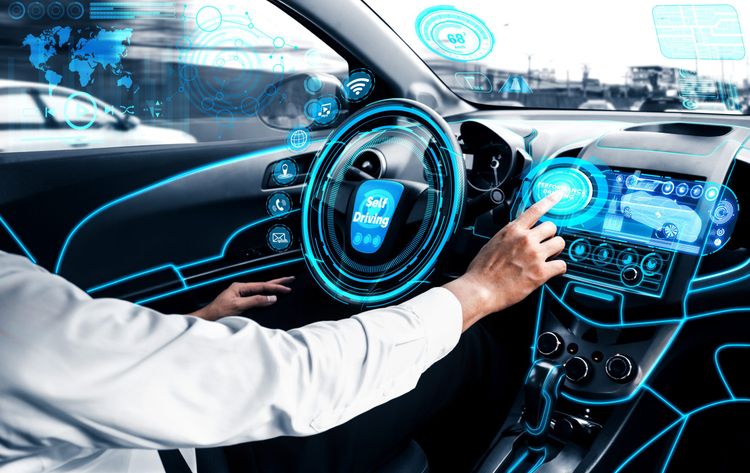Accelerating Digital Transformation to Boost Adoption of In-Vehicle Payment Services

The way people get around is changing faster than ever before, and connected car payments are set to have a major impact on how drivers and passengers experience travel. By using data and connectivity to automate and streamline the process of buying and paying for services, drivers will enjoy easier and more convenient experiences. This shift will ultimately lead to increased customer usage and interaction for service providers, as well as the development of new, advantageous payment models that could make in-car payments more popular in the future.
One major element that greatly impacts the expansion of the global in-vehicle services market is the fast-changing digital payment environment, which has gained significant traction as traditional financial services have expanded amid the pandemic.
Based on the recently released Global Findex 2021 dataset by the World Bank:
These predictions emphasize the increasing change in how consumers behave and the expanding requirement to implement improved digital payment options, which could create a positive path of growth for the industry of in-car payment services.
Self-driving EVs Boost Demand For In-car Payments
As customer demands are changing, the worldwide automotive patterns are also adapting, leading to a growth in the current collections of electric cars. The latest release of the yearly Global Electric Vehicle Outlook produced by IEA reveals that:
Automobile manufacturers worldwide are adapting to the rise of electric vehicles by developing advanced infotainment systems that cater to evolving customer needs. By doing so, they hope to gain a larger market share in the in-vehicle payment services industry. An example of this is Hyundai, who has announced their plans to introduce an in-car payment system in May 2023. This system is expected to make its debut in the all-electric IONIQ 5 crossover SUV, allowing drivers to conveniently find and pay for food, parking, and EV charging services. This move demonstrates how automakers are exploring new avenues to generate revenue and provide customers with smartphone-like features. These innovative solutions will facilitate the adoption of digital services within the automotive sector, thereby creating fresh opportunities for growth in the in-vehicle payment services business.
Expanding In-Car Payments: Innovative Efforts
Emerging technologies have had a significant impact on the automotive industry, revolutionizing how people conduct business, create innovative business models, and generate new possibilities for everyone involved. Experts in the field anticipate that the adoption of digital payment services, like car wallets, can revolutionize the payment industry, transform the way business is done, and enhance the overall shopping experience. With customers seeking more convenient digital payment solutions, car dealerships, technology startups, and financial institutions are increasingly open to implementing new distribution methods and shopping experiences to meet the evolving needs of consumers.
With the goal in mind, PayByCar, Inc., a forward-thinking provider of payment solutions for vehicles, revealed its intention to broaden its offerings at 27 Alltown Mobil gas stations in Massachusetts in May 2021. The objective was to provide PayByCar customers with enhanced safety by allowing them to conveniently make payments for fuel and other products through their mobile devices, eliminating the need for cash, a mobile app, or a credit card.
In a different situation, BMW selected Parkopedia to support its in-car parking payment service called Single Sign-On (SSO) in December 2022. This new functionality allows BMW drivers with BMW Operating Systems 7 and 8 to conveniently make parking payments in Austria and Germany directly from their car's built-in infotainment system. The company has intentions to broaden its reach to additional European countries later this year.
Implementing growth tactics like these will enhance the usage of payment services within vehicles for various applications such as refueling or electric vehicle charging, automated toll payments, intelligent parking, and e-commerce. This, in turn, will result in an increase in market earnings.
As the technology landscape evolves and consumer preferences shift, the market is set to see significant progress in the coming years. Additionally, players in the automotive and tech industries are making strategic moves that will create a solid foundation for the long-term growth of in-vehicle payment services.
The collaboration between Ford and Stripe exemplifies this pattern. In the previous year, the two organizations entered into a long-term agreement to transform the way automotive payments and online commerce are conducted. According to the collaboration, Stripe will serve as the primary payment service provider for Ford and its retailers throughout Europe and North America. Additionally, the automobile industry's increasing investments will contribute significantly to the advancement of cutting-edge technologies, thereby fostering a greater need for payment services within vehicles.

















